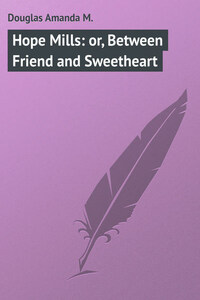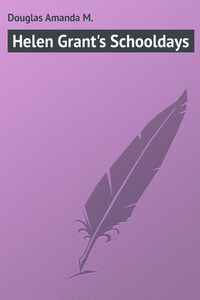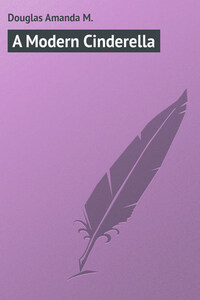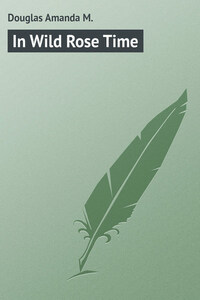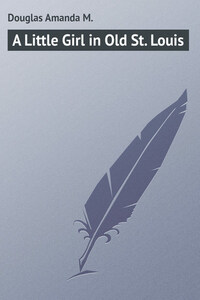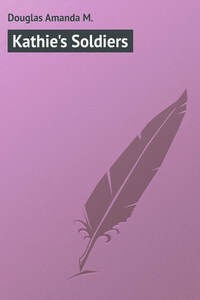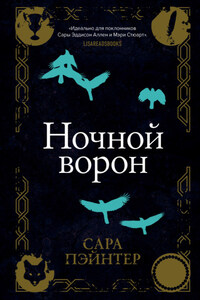"There is Fred again with his arm around Jack Darcy's neck. I declare, they are worse than two romantic schoolgirls. I am so thankful Fred goes away to-morrow for a year! and I do hope by that time he will have outgrown that wretched, commonplace youth. Mother, it is very fortunate that Jack is the sole scion of the Darcy line; for, if there were a daughter, you would no doubt be called upon to receive her into the bosom of the family."
"Which I never should do," remarked quiet, aristocratic Mrs. Lawrence, not even raising her eyes from her book.
"Not for the sake of your only son?" continued Agatha, with an irritating laugh.
"Don't be silly, Agatha," returned the mother, with an indifference that took off the point of the query.
Her second sister glanced up from a bit of pencil-drawing, then lowered her eyes to the street where the boy friends stood, one with his arm over the other's shoulder.
"Think of a Harvard graduate arm-in-arm with – well, a mill-hand! No doubt Jack's father will put him in the mill. I cannot see any sense in a boy of that class taking two years at the academy."
On the opposite side of the room were two girls, hardly more than children, busily engaged in ornamenting a box with transfer-pictures. One had a rather haughty mien, as became a Lawrence; the other, pretty, piquant little Sylvie Barry, looked toward the elders, knit her brow, with both thought and indignation visible in its lines, and held her picture absently in her hand.
"Why do you listen to that?" asked Irene Lawrence disdainfully. "It is only Jack Darcy, and he's nobody. His father works in the mill."
"I know that!" was Sylvie's rather sharp retort, answering the latter part of the sentence merely. Child as she was, she experienced a strong desire to do battle, not only for Jack, but for some puzzling cause she could not quite comprehend. With the blood of a French duke in her veins, of soldiers and martyrs as well, she was a sturdy little democrat. It seemed cowardly not to take up arms.
"That butterfly is to go next," remarked Irene, reaching out for it; and Sylvie held her peace, though she felt the warm blood burning in her cheeks.
Jack Darcy did not need any champion within doors; for Fred stood up bravely against these three girls, and from them received his first impression that women were small of soul and narrow of mind. As they stood by the gate now, this last hour grudged to them, neither dreamed that this was the final canto in the poem of boyhood. They had been fast friends since the first day pale, puny Fred made his appearance in school, and was both laughed at and bullied by some boys larger in size, but younger in years.
"He will have to get the nonsense rubbed out of him some time," thought Jack; "and it can never be younger." But, when the contest degenerated into the force of the strong against the weak, one blow of Jack's fist sent Brown reeling and howling.
"Try a fellow of your own size next time," was Jack's pithy advice.
Fred came to him, and cried hysterically in his arms. Jack had experienced the same feeling for some poor rescued kitten. Fred, with his head full of King Arthur and his knights, mythology, and bits of children's histories, wherein figured heroes and soldiers, elected Jack to the highest niche in his regard.
Jack Darcy was a wonderful boy withal, a very prince of boys, who hated study and work, and loved play; who despised Sunday clothes and girls' parties; but who had not his equal for spinning a top, or raising a kite, and when it came to leap-frog, or short stop, he was simply immense. Then he always knew the best places to dig worms, and the little nooks where fish were sure to bite, the best chestnut and walnut trees; and, with years and experience, he excelled in baseball, skating, wrestling, leaping, and rowing. Jack Darcy was no dunce, either. Only one subject extinguished him entirely, and that was composition. Under its malign influence he sank to the level of any other boy. And here Fred shone pre-eminently, kindly casting his mantle over his friend, – further, sometimes, than a conscientious charity would have admitted; but a boy's conscience is quite as susceptible of a bias as that of older and wiser people. On the other hand, Jack wrestled manfully with many a tough problem on which Fred would have been hopelessly stranded. Once rouse the belligerent impulse in Jack, and he would fight his way through.
These two were at different ends of the social plane. Fred's father was the great man of Yerbury, the present owner of Hope Mills; not only rich, but living in luxury. He had married Miss Agatha Hope, and by the death of her two brothers she had become sole heir to the Hope estate: though it was whispered that her brothers had left a heavy legacy of debts behind them. There was family on the Lawrence side as well, but not much money. David Lawrence had prospered beyond his wildest dreams. He had twice been mayor of Yerbury, gone to the State Legislature, and been spoken of as a possible senator; but he did not sigh for political distinction.
